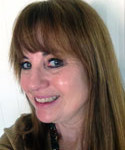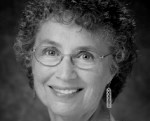By Sondra Shapiro
It was a beautiful, early spring day several years ago as my friend and I walked though my neighborhood.
Instead of noticing the fresh air, azaleas or budding trees, I was intently listening to my friend, who was sharing what she had just learned — the secret to maintaining her sanity. I was less amazed by the lesson and more impressed that my friend, who had always been impatient and judgmental, could suddenly change so drastically.
For years, my friend allowed an annoying relative to get under her skin. This relative would do her best to get everyone in her wake to feel sorry for her, to make these people feel guilty about the way they treated her or, rather, how she perceived she was being treated.
Unfortunately, my friend would get very stressed and angry every time this relative started in with her guilt trips. This went on until my friend discovered she could just tune out her relative.
My suddenly pragmatic friend said, “Words can’t hurt unless you allow them to.” I could tell by the peaceful look on her face that she was right.
This time, as my friend relayed the latest drama involving her relative, she was actually smiling and joking about the incident.
 “Wow,” I said, “wouldn’t that have been great if you had tried this a long time ago?” Then I realized the error in my statement: My friend wouldn’t have had enough life experience to realize the correct way to handle the relative.
“Wow,” I said, “wouldn’t that have been great if you had tried this a long time ago?” Then I realized the error in my statement: My friend wouldn’t have had enough life experience to realize the correct way to handle the relative.
She was finally at a place in life where she could work it all out. That kind of lesson requires lots of time and patience.
It was during this encounter that I received a lesson of my own. There is truth in the idiom that with age comes wisdom. We were in our early 50s at the time.
It doesn’t happen overnight. Rather, wisdom requires a continuous progression. We learn from day-to-day experiences.
No one is too old to learn new things — sports, hobbies, a foreign language and, most importantly, ways to attain inner peace and happiness.
It is true that as we get older our cognitive functions slow, memories fade. I prefer to believe that we have so much information stored in our brain, it just takes longer to access things. Another friend and I jokingly liken this to trying to access information from a file cabinet stuffed with folders.
Many underestimate the extent of their intelligence because they negate the knowledge one acquires from everyday life. Just because someone isn’t book learned doesn’t mean they aren’t smart. The lessons learned from experience are the most efficient way to live a happier life and to grow wise.
Wisdom is a tool that helps people better adapt — or accept — qualities that many older people tend to possess.
According to the online reference guide, How Stuff Works, which compiled data from studies that look for ways to define wisdom, common qualities include: “intelligence and knowledge; an understanding of human nature (including the concepts of uncertainty and relativism between cultures); emotional resiliency; humility; an ability to learn from experience; openness; superior judgment; and problem-solving skills.”
At 60, I find myself looking at the big picture when dealing with problems and finding solutions. Putting things in context was not easy when I was younger. I would react, and then obsess. When I heard recent gossip about myself, I recalled my friend’s lesson about tuning out hurtful words. While I won’t say I wasn’t initially upset, it didn’t take me long to get over it.
This seemed alien to what has always been my sensitive nature. With the benefit of perspective, I recalled experiencing this type of trouble before and suffering many sleepless nights mulling over it. Looking back, I realized all my angst was for naught. Everything worked out just fine with no action on my part and with no lasting harm to my emotional wellbeing.
These days, a good night’s sleep is better than obsessing over something I can’t change. What I can do is not empower those words with the ability to hurt me.
Monika Ardelt, an associate sociology professor at the University of Florida in Gainesville, developed a scale to assess wisdom. In a recent New York Times article on age and wisdom, she said, “Wise people are able to accept reality as it is, with equanimity.” I am experiencing that more and more. I am certainly calmer these days and more sensible.
To help ensure a state of mental acuity, research revealed people can take courses, read, tackle new hobbies and volunteer. After taking up electronic Scrabble a few years ago, I noticed an uptick in my cognitive ability.
Being aware of the world around us, making ourselves available to those in need and listening to other perspectives help us grow emotionally and intellectually.
Journal writing or life-review courses supposedly allow us to track progress and to continue growth. When I look back at the diaries I have kept, I realize how much I have changed. My world perspective used to be so narrow. Solutions to problems were such a struggle and rarely had a good result. What was I thinking? These days those problems wouldn’t give me pause.
I am smart enough to understand that we can’t prevent the decline of body and mind in old age. However, wisdom provides the tool to face those challenges more effectively. In that New York Times article, Vivian Clayton, a clinical psychologist specializing in geriatric neuropsychology, defined wisdom as “an ace in the hole that can help even severely impaired people find meaning, contentment and acceptance in later life.”
As I get older, it’s being reinforced more and more that aging is not to be feared. I like where I am in life, and though I’m in no hurry to get there, I think I’m going to be even wiser at age 70.
Sondra Shapiro is the executive editor of the Fifty Plus Advocate. Email her at sshapiro@fiftyplusadvocate.com. Follow her online at www.facebook.com/fiftyplusadvocate, www.twitter.com/shapiro50plus or www.fiftyplusadvocate.com.








